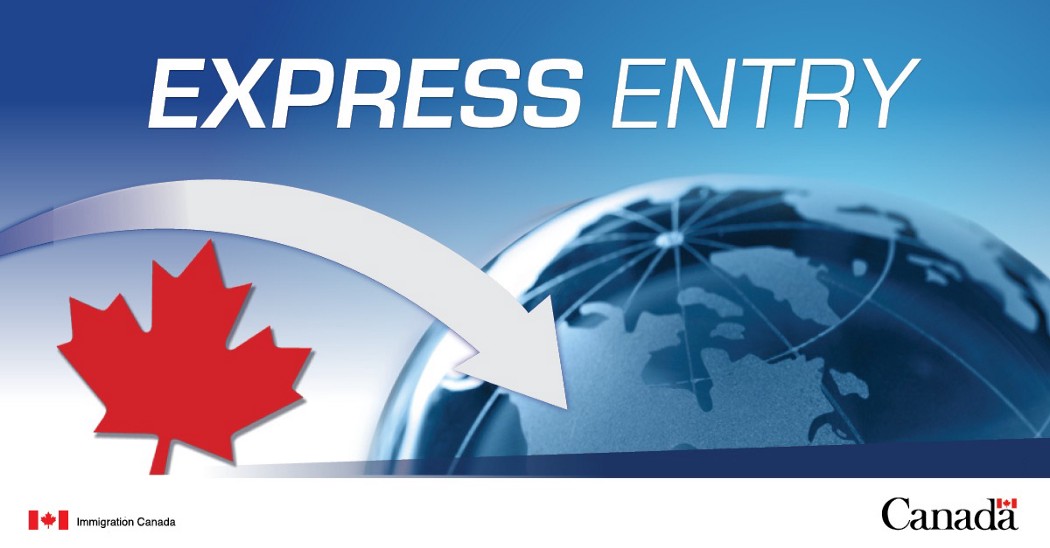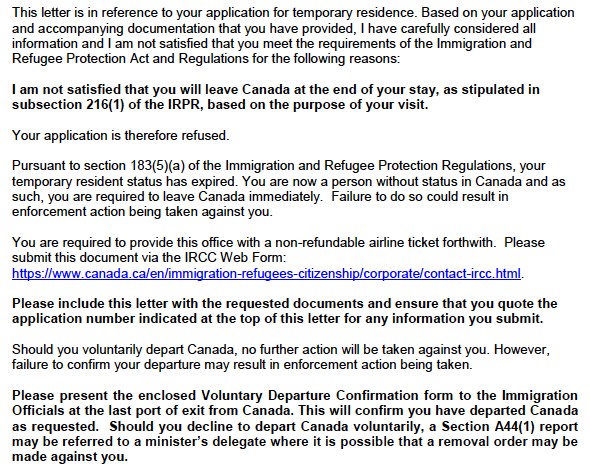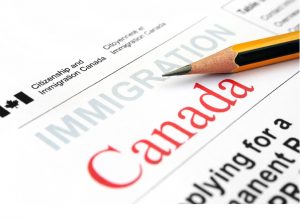Express Entry: Three Things to Ask Your Representative About Your eAPR Before They Submit + One Bonus Tip
As many of you are aware, Express Entry took a new direction last week when 27,332 Invitations to Apply were issued to Canadian Experience Class applicants at a record-low 75 CRS points
I will not repeat what I have on Twitter and other channels. I would have preferred an ordered and organized invitation to apply that gave applicants more time to anticipate this move, secure relevant documents, and create profiles. This also could have better tempered expectations in the future and avoided the unfortunate cash-grab I suspect we will see from those now taking unreasonable amounts of money to create profiles, a step ripe for ghost consulting/agencies/and unauthorized practice.
Nevertheless, what what was done is done (and cannot be undone) and now Applicants are being contacted by their representatives letting them know they have an invitation and a limited time to gather their materials (90 days) for which many will struggle to obtain key documents such as required overseas police clearances.
The Limitation of the IRCC Representative Portal
The first contextual thing to understand is that the current IRCC Representative’s Portal has major limitations. The biggest limitation is that we are unable to share our work with clients to access their own file, without taking print to PDF screenshots or joining a virtual meeting to share our screens. For this reason, many counsel may suggest you create your own profile and that they help you review and edit what you type in. They may take it on an hourly review basis or as authorized representative (with a Use of Rep). While some consider this ‘ghosting’, I’m not mad at this approach.
It is a risk though, I repeat a huge risk, to allow for the submission of any application without reviewing what that representative has done in full and giving the green light before it is submitted. This is particularly true with this round of invitations. Given the volume of ITAs and the Government’s recent 0% target of meeting Express Entry processing times, I would suggest that the Government very likely has some sort of artificial intelligence-based pre-assessment system lined up to tackle this workload. Applicant/Representative mistakes and errors of even the most minute type, may be readily caught. There appears to be an increased scrutiny around misrepresentations, particularly around failures to disclose arrest histories and omissions of relevant employment/work history details.
We are hearing, anecdotally, that some advisors (both authorized and unauthorized) have in some cases in the ballpark of 200 ITAs. That means 200 Electronic Applications for Permanent residence (eAPR) applications that need to be submitted within 90 days. You may find that these are often time larger scale enterprises, volume driven, who may have already registered many clients on a hope and a whim, not realizing they would pan out. Now, they will need to put resources together (which include passing you off to case managers or other processing agents – with limited Canadian immigration law expertise) to meet their deadlines.
As someone who considers working on a dozen paid applications a month as enough volume (to control process and see them through step by step), I worry for the applicants. I write this piece for their well-being and best interests.
Three Things to Ask Your Express Entry eAPR Rep
#1 – Ask for a Print to PDF of Your Entire Application With Employment History Broken Down
If you are counsel and a CBA Member consider Nate Po’s app Immprintr to print your entire application as one pdf (https://www.cba.org/Sections/Immigration-Law/Resources/Resources/2018/IMMPrintr)
Ask for the full breakdown of the Employment history to make sure that what you have passed on with respect to your positions, hours of work, start and end months is consistent. Double check that the NOC codes selected match with your duties at the time and be careful to avoid mixing together or overlapping two clearly different positions.
Triple check that the statutory questions have been answered correctly, particularly around any arrest history, work for Governments, medical inadmissibility issues, and military history.
Document discrepancies, ask for changes to be made, and to see proof of those changes by way of revised screenshots.
#2 – Ask for a Itemized/Number List of All Attachments To Be Submitted to be Shared Via Cloud for Your Review
One of the value-adds an authorized representative should be able to provide is organization. They should know what IRCC wants to see and what makes life easier for the processing Officer. If they are organizing things in a way that doesn’t make it clear and in fact, is probably messier than you would have done it yourself – this should be a flag.
Ask your authorized representative for a full itemized/numbered list of all attachments (often called an Enclosures List or Personalized Document Checklist). Ask for a Cloud-shared folder of everything that is being submitted. Are the documents you provided there? If they have been excluded, ask why (or why not). Some flags include pdf attachments that are much too large (suggesting the authorized representative has limited experience with upload size), as well as things that are not combined properly or not at all. This is also your way to double check what you have submitted against IRCC’s completeness check list of attachments for Express Entry (see here: https://www.canada.ca/en/immigration-refugees-citizenship/corporate/publications-manuals/operational-bulletins-manuals/permanent-residence/express-entry/applications-received-on-after-january-1-2016-completeness-check.html)
An incomplete application can often have huge and negative impacts on one’s ability to stay in Canada during processing of an Express Entry eAPR application.
#3 – Ask for Transparency on Timelines and Info on What the Follow-Up Looks Like
The reality if you are working with someone who has a volume practice, is that this invite may have created an unsustainable workload for them. This requires that you ensure they are on top of your file, and for you to cover any gaps in their work and to hold them extra accountable.
Ask them up front – how many files are you working on and when do you see my file being completed. If they have some form of project management process, they should be routinely updating you with their submission plan, breaking down roles and responsibilities, and providing iterative feedback on your draft documents (especially Confirmation of Employment letters) at an agreeable time.
If you haven’t met your consultant or lawyer in person – that too is likely something you want to secure to at least put a face to name. Their availability (or lack thereof) may also be a good sign of the level of oversight on your file.
Ask too about Bridging Open Work Permits (“BOWP”). Ask about what happens to your accompanying family members who might have status expiring.
If updated documents will likely need to be submitted in order to ensure a complete application – ask them for their update plan. Where will they update the documents? What documents are necessary for a complete application and which ones are discretionary? These questions will likely give you a sense of where you stand and help you make sure you meet your timelines.
I will throw in one bonus tip for good measure.
Bonus Tip #4 – Don’t Be Afraid to Ask for a Second Opinion (Seek Independent Legal Advice). It’ll Save You Money
A refused application that needs to resubmitted will easily draw anywhere between 1.5-2 times the price of an initial application. Reconsideration requests, with an uncertain and ultimately discretionary outcome, could itself be in the range of at least cost equivalent to the original application, particularly if significant legal submissions on the test for reconsideration are required. The process of judicial review, amid lower grant rates, will put you back likely 2 times + the cost of your initial applications.
What is the worst case to engage a second opinion for a review on an hourly basis: you can choose the scope, but you are looking at in most cases about an additional 3-5 hours (at most). Even a spot check consultation for an hour can possibly turn up some red flags. I can tell you from personal experience, I have had to save many a client from having their application submitted with major concerns (often times possible misrepresentation) on file.
Bottom line: it is entirely worth it to get a second opinion on your Express Entry application, particularly
Express Entry: Grounded Expectations
Most importantly, and to conclude, Express Entry going to 75 points one one draw should not yet be a leeway to put your foot off the gas pedal. Blindly abandoning a paper-based PNP application, figuring you can get away with not doing a language test, can often backfire. If anything, I believe even more diligence will be needed now. Allowing more individuals into the race does not presume everyone will finish. Indeed, I can see these efforts (including the number of refused/abandoned/incomplete applications) used as justifications for the ‘trying’ to meet Canada’s immigration targets.
Greater due diligence and better organization will be needed especially if Artificial Intelligence becomes part of the assessment process.
I hope all those authorized reps (even those with 200 ITAs) the best as they deal with this major development in Canadian immigration law. I hope, most importantly, that our clients are well served by good, competent, and ethical work.




